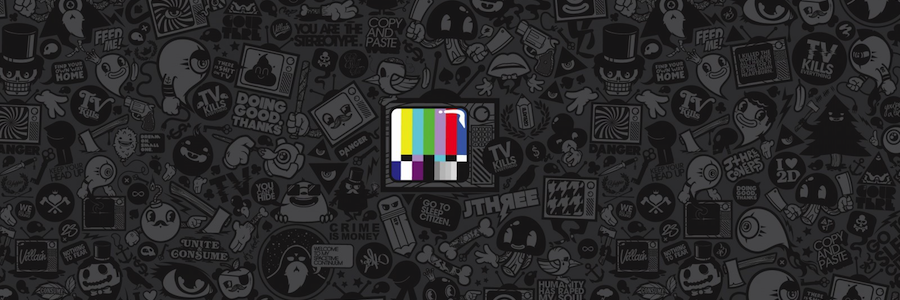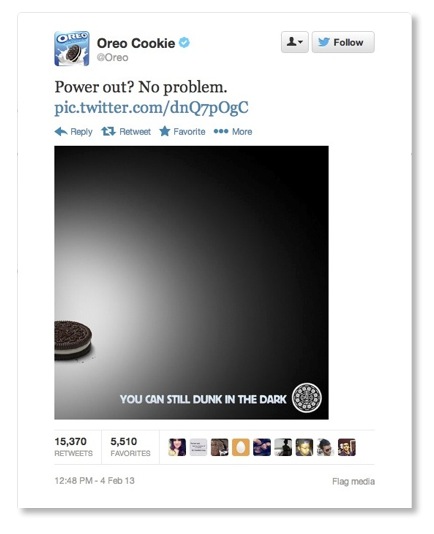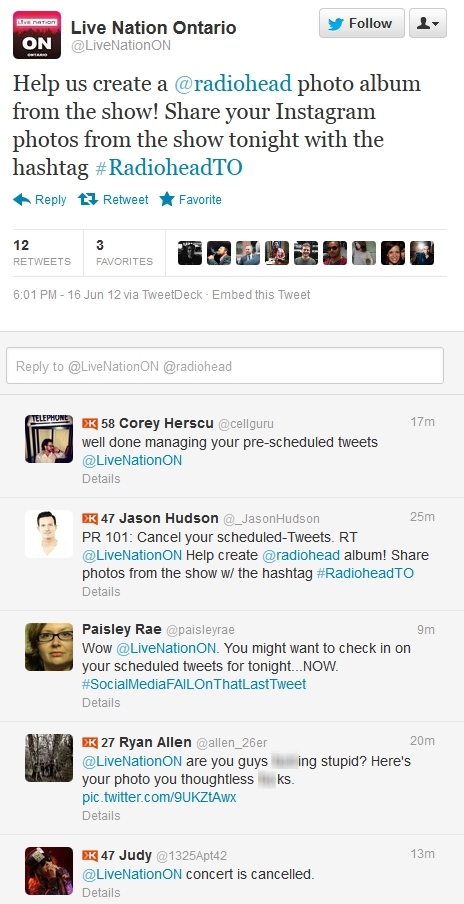
4 Major Marketing Trends 2013 & How You Can Leverage Them Right Now
Marketing trends come and go faster than you can say “let me think about implementing that”, but those that take action and ride the wave at the perfect time can explode onto the scene. Here are 4 marketing trends that your company can leverage right now:
1. CUSTOM CONTENT
In an age where selfish marketing is easily ignored, custom content reigns superior. Traditionally, social media focused on two pillars: a) curating content from publications, and b) interacting with followers. While these are still important, a large focus is now placed on custom content. Content that is original, informative, and/or entertaining provides value for your brand’s followers; it’s content that they can only find by going to your website or your social media page. Great custom content comes in all shapes and sizes; it can be visually appealing imagery, informative blog posts, funny photos, and now more than ever, (with Vine and Instagram) engaging videos. As a side note, statistics say that 80 to 90 percent of global consumer traffic will be via video by 2017!
An example of custom content courtesy of Puma
Progressive publications that traditionally sell advertising space have also caught on to the trend and are now offering custom content to it’s clients through native advertising avenues; an example of this is the bundle of original content articles Schema Magazine created for the reality show, K-Town. Bottom line is, if you’re not creating original and unique content now, your customers have no reason to pay attention to you.
WHAT YOU CAN DO RIGHT NOW
1. Find your bullseye target and take a look at your target demographic and really try to understand what they’re paying attention to
2. Create a custom content strategy for your target demographic and invest more hours CREATING, instead of curating, for them. Contact us if you’d like an example and directions on where to get started.
3. Try a variety of content; figure out what receives positive feedback and continue to consistently provide that value to them to build a tribe of ambassadors for your brand.
2. INTEGRATED ADVERTISING 2.0 | TELEVISION & SOCIAL MEDIA

Image courtesy of www.listofimages.com
At this very moment, the majority of advertising dollars are still going towards traditional mediums like television, and although digital has taken a large chunk of those dollars in recent years, television advertising will not go away until television itself goes away. That day might not be far off as consumers begin to flock towards more affordable subscription-based entertainment options like Netflix, but until there’s a replacement for live news coverage and live sporting events, cable and broadcast television is here to stay. Having said that, advertisers are becoming more aware of how choosing what communication channels to use and are beginning to leverage the benefit of real-time social media capabilities and television. Every hit television show usually comes with a hashtag in hopes to create further conversation on social mediums, but it won’t stop there. Expect television to go under some major retooling to encourage more advertisers – innovation involving picture-in-picture integration with social accounts and real-time QR codes might sound ridiculous, but the ability to engage viewers at an even higher level is definitely being looked into. But before television undergoes these changes, social media and T.V. are still acting like two isolated mediums being forced together by advertising dollars. And, whenever this happens, the industry is just waiting for someone to do it right.
WHAT YOU CAN DO RIGHT NOW
1. Take a look how you’re currently buying media, where is there an opportunity for integration? Take a shot at it. But try to push the boundaries, you don’t need to integrate the same way every other advertiser is. Like I said, nobody has figured out the perfect solution yet.
2. Create or change your integration strategy. Think about your customer’s experience with your advertisements – is the tie between your direct mail campaign and your digital campaign strong enough to warrant integration? Focus less on the medium and more on the content.
3. If you’re not buying media space on television because of cost, figure out if that still rings true. With the advent of popular television shows on premium cable, and alternative sources like Hulu and Netflix, prime-time entertainment isn’t dominated by major broadcasters anymore. Strategic media buying for T.V. on cable channels may not be as expensive as you think.
3. BIG DATA

Having more data is like having more apple trees. The opportunity to find 10 great apples in an orchard of one hundred trees is greater than if you only have a single tree to pick from. The more data we collect, the more chance we will be able to find the nuggets of information and supporting evidence that will lead to more accurate predictions
That quote is from Anto Chittilappilly, co-founder and CTO at Visual IQ, which produces cross channel marketing attribution software products.
Big data has been the “it” word for some time now, but people have been hesitant to get on the bandwagon, mainly because it’s inherently complex. The current Social Media metrics consumers have access to are great, but big data has the capacity to build full consumer profiles that allow brands to use historical facts to determine future outcomes. It’s like having a crystal ball that tells you exactly how your customer will act and react.
WHAT YOU CAN DO RIGHT NOW
1. If you don’t already, find the limits of your data. Start tracking your successes now, and learn as much as you can about your consumers. Something as simple as using the free tool, bit.ly to track the number and demographic of Social Media clicks is a good start.
2. Once you have maximized those limits, start exploring and utilizing Big Data. Maybe first read this book and begin to see how “Google was able to predict the spread of H1N1 by looking at where people were searching flu related terms like ‘cough’ and ‘fever'”
4. REAL-TIME, CONTINUOUS MARKETING

Image courtesy of www.mediameerkat.com
Digital never sleeps, so your digital marketing shouldn’t either. Progressive brands are realizing this and integrating “real-time” into their communications strategy. This is a form of “News-jacking” in which brands try to JOIN conversations rather than change them. A great example is what Oreo did during last year’s infamous Superbowl blackout:

If you’re real-time, you’re real, and followers love that. More importantly though, it’ll prevent you from chaotic backlashes like this:

Image courtesy of www.unmarketing.com
Why are people responding so harshly? Well, it’s because the show had already been cancelled due to the stage collapsing – an accident which killed 1 person and injured 3 others.
A brand must be present, or at least feel like it’s present. Marketing is now real-time and continuous, and that doesn’t necessarily fit neatly into a 9-5 schedule.
WHAT YOU CAN DO RIGHT NOW
1. Write down a list of major events that are a) relevant to your industry and b) targets the same demographic your brand is targetting
2. Integrate “real-time” into your communications strategy and target the list from #1. What tweet, post, campaign, or video are you going to do doing the next Stanley Cup Playoffs? Or the next Emmys?
3. Write down ideas on how you’re going to join popular conversations and “steal the show” with unique content.
Technology is moving so quickly that the entire marketing industry is huffing and puffing just trying to keep up. There are new and effective ideas being created every day – and not always by the industry experts. So, if you’re planning on breaking boundaries, break them now – they’re as fragile as they’ve ever been.
Originally posted on VanCityBuzz.
If you want to learn more about specific key elements of an effective marketing plan, read our 50+ page booklet on How to Write A Strategic Marketing Plan That Yields ROI – complete with explanations




